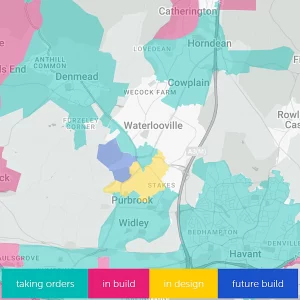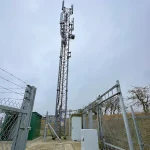Sponsored Links
UPDATE TalkTalk Warns of BTs Rising Broadband Prices
Posted: 09th Mar, 2009 By: MarkJ
Budget broadband ISP TalkTalk has warned that proposed increases to the price BT is permitted to charge providers for access to its network via unbundled (LLU) lines could lock 1.8 million people out of Britain's digital revolution.
Dr Chris Doyle of Warwick Business School says that on his analysis, BTs wholesale prices should be amongst the cheapest in Europe, yet it is now on course to become one of the most expensive within the next three years:
The proposals could see rates for the key LLU product increase from £81.69 per annum to a maximum of £91 in April, representing an 11% increase. Dr Doyles findings are contained within a report commissioned by TalkTalk that will be shared with Ofcom, which is currently consulting on the changes, and the Government.
Ofcom has also proposed allowing BT to increase prices further by up to 22% over the next three years to a maximum of £111 per annum in 2012. The rises concern charges for access to the copper wires which connect customers with their local BT exchange (Local Loop Unbundling).
However a BT spokesman tells us that "pricing will only increase to the extent it allows us to properly recover our costs". The operator also notes that other prices (e.g. Ethernet) have come down to help balance things out, while next-gen investment could be at risk if it is unable to achieve a fair return for shareholders.
Referencing TalkTalk's own products, BT said that there was "evidently scope to increase prices if providers like [TALKTALK] can give away broadband for free" alongside its line rental product. Certainly TalkTalk's motives are clear, as they like other fully unbundled providers could be among the hardest hit.
We doubt that 800,000 households (over 1.8 million people) will really be "denied home broadband access", as TalkTalk fears, if the current proposals go ahead. However it could indeed result in some ISPs becoming a pound or so per month more expensive. Such rises cannot easily be absorbed by the ISP.
For BT this would obviously be a good thing because unbundled ISPs are often able to undercut the operators own broadband products and service pricing. Smaller BT wholesale based ISPs might also benefit if the pricing balance swings back in their favour.
UPDATE - 10th March:
BT has now issued us with an updated second comment:
Dr Chris Doyle of Warwick Business School says that on his analysis, BTs wholesale prices should be amongst the cheapest in Europe, yet it is now on course to become one of the most expensive within the next three years:
The Government recently set out ambitious plans to include all households in the digital revolution so it is puzzling that the regulator is proposing to allow BT to increase wholesale prices and so raise the barrier for lower income households, he said.
Even more puzzling is why BT is seeking a price increase in the first place. The UK introduced competition into telecoms before almost every other EU member state, it has one of the highest population densities in Europe and a population size which allows for scale economies.
All these factors, together with the elaborate regulatory oversight of Ofcom, should combine to make BT the most efficient and lowest cost provider in Europe with no need for increases to wholesale charges warranted at this stage.
I conclude that either BT is much less efficient than it should be, or it is exaggerating its costs or it is being allowed to make excess profits by the regulator, said Dr Doyle.
Even more puzzling is why BT is seeking a price increase in the first place. The UK introduced competition into telecoms before almost every other EU member state, it has one of the highest population densities in Europe and a population size which allows for scale economies.
All these factors, together with the elaborate regulatory oversight of Ofcom, should combine to make BT the most efficient and lowest cost provider in Europe with no need for increases to wholesale charges warranted at this stage.
I conclude that either BT is much less efficient than it should be, or it is exaggerating its costs or it is being allowed to make excess profits by the regulator, said Dr Doyle.
The proposals could see rates for the key LLU product increase from £81.69 per annum to a maximum of £91 in April, representing an 11% increase. Dr Doyles findings are contained within a report commissioned by TalkTalk that will be shared with Ofcom, which is currently consulting on the changes, and the Government.
Ofcom has also proposed allowing BT to increase prices further by up to 22% over the next three years to a maximum of £111 per annum in 2012. The rises concern charges for access to the copper wires which connect customers with their local BT exchange (Local Loop Unbundling).
In any case, says Dr Doyle, my analysis suggests that there is no reason why BT cannot continue to make a fair return at the current prices.
However a BT spokesman tells us that "pricing will only increase to the extent it allows us to properly recover our costs". The operator also notes that other prices (e.g. Ethernet) have come down to help balance things out, while next-gen investment could be at risk if it is unable to achieve a fair return for shareholders.
Referencing TalkTalk's own products, BT said that there was "evidently scope to increase prices if providers like [TALKTALK] can give away broadband for free" alongside its line rental product. Certainly TalkTalk's motives are clear, as they like other fully unbundled providers could be among the hardest hit.
We doubt that 800,000 households (over 1.8 million people) will really be "denied home broadband access", as TalkTalk fears, if the current proposals go ahead. However it could indeed result in some ISPs becoming a pound or so per month more expensive. Such rises cannot easily be absorbed by the ISP.
For BT this would obviously be a good thing because unbundled ISPs are often able to undercut the operators own broadband products and service pricing. Smaller BT wholesale based ISPs might also benefit if the pricing balance swings back in their favour.
UPDATE - 10th March:
BT has now issued us with an updated second comment:
Emma Gilthorpe, BT's Director of Industry Policy and Regulation, said: "It is astonishing and ludicrous to suggest that people will be locked out of Britain's Digital revolution by BT. The UK has the most competitive broadband market in the world, thanks in large part to the massive investment made in broadband infrastructure by BT."
Search ISP News
Search ISP Listings
Search ISP Reviews
Latest UK ISP News








Cheap BIG ISPs for 100Mbps+
150,000+ Customers | View More ISPs
Cheapest ISPs for 100Mbps+
Modest Availability | View More ISPs
Latest UK ISP News
Helpful ISP Guides and Tips
Sponsored Links
The Top 15 Category Tags
- FTTP (6798)
- BT (3881)
- Politics (3074)
- Business (2766)
- Openreach (2663)
- Building Digital UK (2512)
- Mobile Broadband (2475)
- FTTC (2142)
- Statistics (2127)
- 4G (2092)
- Virgin Media (2024)
- Ofcom Regulation (1779)
- 5G (1732)
- Fibre Optic (1604)
- Wireless Internet (1595)
Sponsored
Copyright © 1999 to Present - ISPreview.co.uk - All Rights Reserved - Terms , Privacy and Cookie Policy , Links , Website Rules































